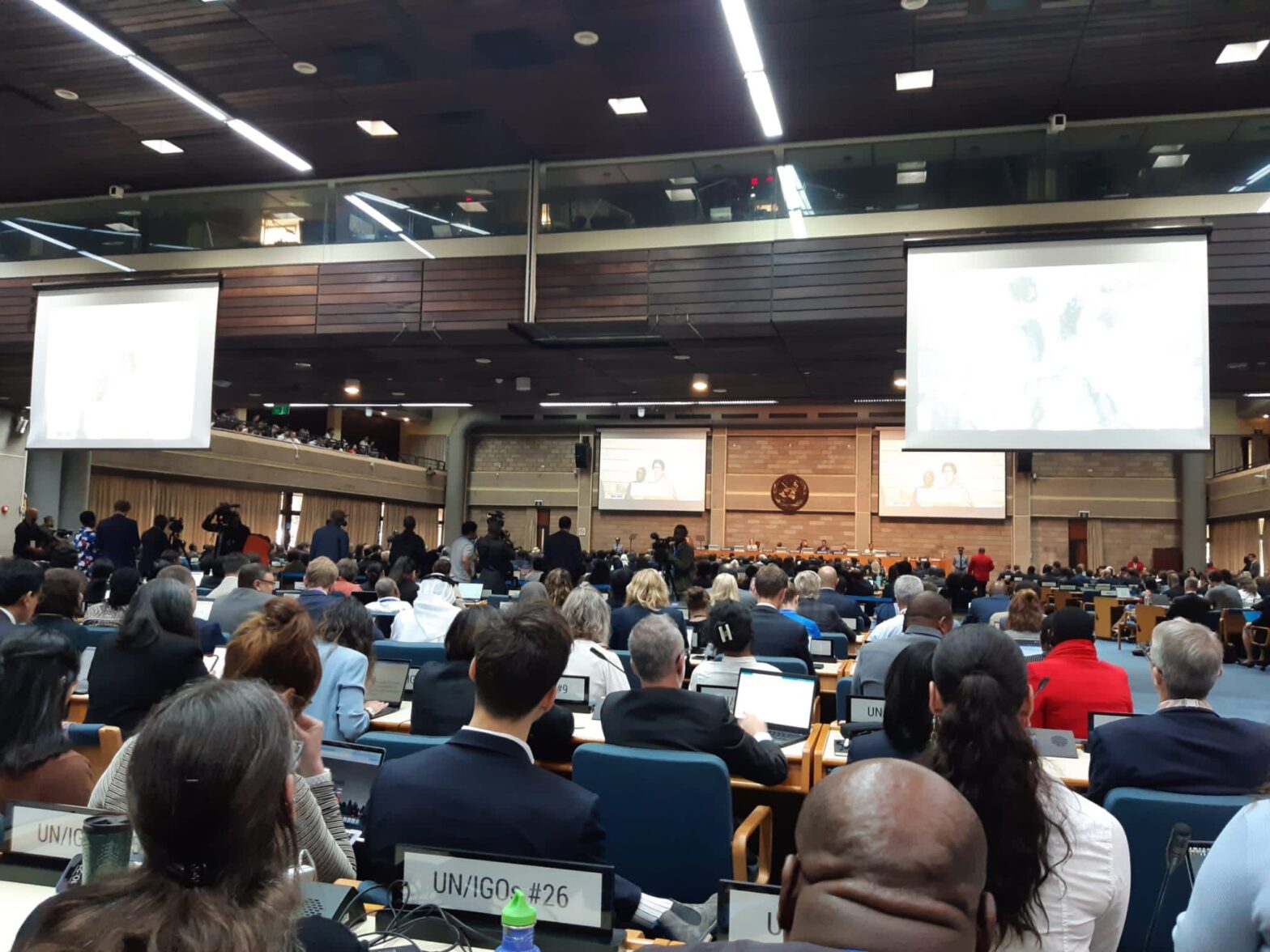Plastics Treaty: INC-3 Underway in Nairobi – Update on Cleanup Matters
On Monday 13 November, the third session of the Intergovernmental Negotiating Committee on Plastic Pollution (INC-3) aimed at establishing a legally binding plastics treaty, started at UNEP headquarters in Nairobi. Negotiations entered the crucial phase of concrete text discussions. Based on the Zero Draft published ahead of INC-3, countries discuss provisions on both the substance of the future treaty and how to implement and finance them. On this last issue, also the financing of, inter alia, remediation of existing plastic pollution is on the table. OceanCare is participating as an observer at the negotiations with a team of three experts.
In a recent briefing for negotiators, OceanCare together with the Environmental Investigation Agency (EIA) called for strong caution against the use of invasive cleanup technologies to remediate ocean plastic pollution. While at first sight such high-tech endeavours could seem a convenient solution to the plastic problem, our research iterates how they harm marine life, which is often present in the same zones as the plastic they try to collect. Current technologies also turn out to be inefficient, but highly capital intensive. Furthermore, existing projects lack a comprehensive strategy to take care of the collected plastic waste. And, especially high-tech, capital intensive, projects prove very prone to greenwashing. Plastic producing and -commercialising companies instrumentalise their support for these projects to show the public how, seemingly, they are taking their responsibility in solving the plastic crisis, while at the same time continuing business as usual.
We do not stand alone with our concerns. A scientific commentary by a group of international scientists published in One Earth almost simultaneously yet independently from our briefing, explicitly warns about the fallacy of plastic cleanup technology; reaffirming the doubts expressed in our briefing. Stressing how, from a scientific perspective, measures to reduce the production and consumption of virgin plastics are key to minimizing global pollution efficiently and economically, the authors, on the other hand, alert for the undesired environmental consequences of Plastic Removal Technologies (PRT). Such technologies, so they reiterate, have unintended ecological consequences, lack independent assessment, are inefficient in catching meaningful amounts of waste, and easily become a tool used by plastics producers to justify continued production growth with externalized costs. Moreover, a report commissioned by the Danish Ministry of the Environment, notes that especially the effectiveness of high-sea cleanups is low, while at the same time expensive and energy-intensive. Therefore, according to the report, actions which prevent pollution reaching these remote areas are preferable.
Indeed, as long-term microplastic researcher, prof. Richard Thompson asserts in The Guardian, despite a wide-spread techno-optimism “[getting many] convinced that a big gadget whizzing around in the middle of the Pacific gyre is going to mop it all up for us”, high-tech initiatives to remove plastic from the sea are at best naïve, at worst distracting from real solutions.
These considerations are key in the context of the ongoing plastic treaty negotiations, currently in their third round at INC-3 in Nairobi. With the discussions now entering the phase of concrete text proposals, based on the so-called Zero Draft, it is more than ever imperative for the international community to have it right. In that sense it is worrying that some countries, encouraged by the so-called Innovation Alliance for a Global Plastic Treaty, tend to plead for an increased and institutionalised financing of these technology-intensive cleanup endeavours. The next days of the negotiations will be crucial in moving away from a misguided belief in a quick techno-fix, essentially allowing us to carry on with business as usual. The funding of an effective treaty should not be allocated to mopping up the floor while the tap is still widely open. To really tackle the issue, the treaty negotiations must move upstream: stop unnecessary, avoidable, and problematic plastic; while reducing what remains in use – tackle harmful chemicals in plastic – ending the linear approach in which plastics are discarded after a very limited use – improve reuse and non-toxic recyclability – and make the polluters pay, not just cleanup their image. Such actions higher up the plastic lifecycle will turn out to be less expensive, yet much more efficient in tackling the global plastic crisis.
